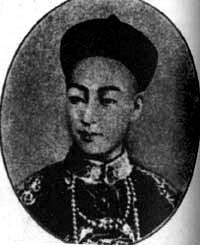Guangxu
Emperor Guangxu, born Zaitian of Aisin Gioro, was born in 1871. Zaitian was the son of Yixuan, also known as 1st Prince Chun. Since Emperor Tongzhi died without a son, Zaitian was suggested to become the reigning monarch (1875-1908). Enthroned when he was only four years old, Guangxu did not begin to participate in state affairs until 1889, when he was 16. But even after Guangxu began formal rule at 18, Empress Dowager Cixi continued to influence his decisions and actions.
In 1814, Japan launched a war of aggression against China, which ended with the Treaty of Maguan. After an embarrassing defeat, with the help of more progressive Qing mandarins like Kang Youwei, Guangxu issued edicts for a massive number of far-reaching modernization reforms.
The reforms, however, were too sudden for China, still under neo-Confucian influence, and Cixi became displeased, as they served as a serious check on her power. Thus, it led her to resume the role of regent and once again take control of the country. Cixi engineered a coup d'état, forcing the young, reform-minded Guangxu into seclusion. Guangxu was put under house arrest and died at the age of 38 on November 14, 1908, just a day before Empress Dowager Cixi herself passed away.
The greatest deed in Emperor Guangxu's life was his "Hundred Days' Reform." Emperor Guangxu was the first Chinese leader to implement policies of modernization and capitalism. Though it was ultimately a failure, it marked the only time in modern Chinese history that a nationwide bourgeois reform movement was launched from top to bottom. Since the Opium War, within the Qing emperors, only Guangxu recognized the inadequateness of traditional politics and culture. He realized that Western politics and culture, for all its faults, still had strengths, and the way to salvation was not only in the introduction of Western science, but also through implementation of a New Deal.
